We Dive Into Your Projects
What were the projects or initiatives you worked on? We probe to understand the scope, the stakes, and the significance.
"Tell me about the biggest project you led last year..."11+ Trades Resume Examples
In Trades, you're competing with 800 applicants per search
You're Not Rejected.
— You're Overlooked —
We fix your trades resume with one conversation
The strongest trades resumes lead with safety record, skill level, reliability, work quality, and leadership capability — not certification lists alone. Hiring managers at firms like Turner Construction, Bechtel, EMCOR, Quanta Services, and MasTec scan for zero-incident safety records, project completion outcomes, code compliance, and proof that your craftsmanship delivered measurable results on time and on budget. Every resume sample on this page was built through a 1-on-1 interview that extracted the specific project outcomes and safety records that differentiate candidates in a field averaging 800 competitors per job search.
Each trades resume sample below was written through our 1-on-1 interview process. Click any trades resume example to see the full sample and learn how we transformed their experience into proof.
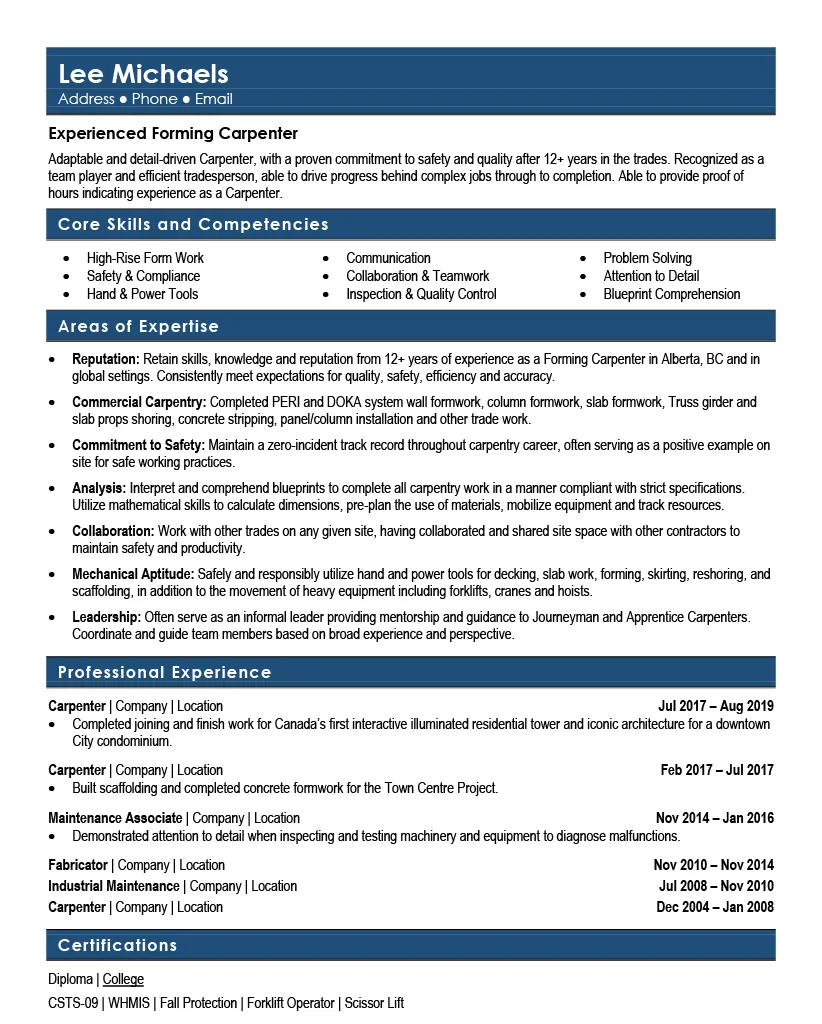
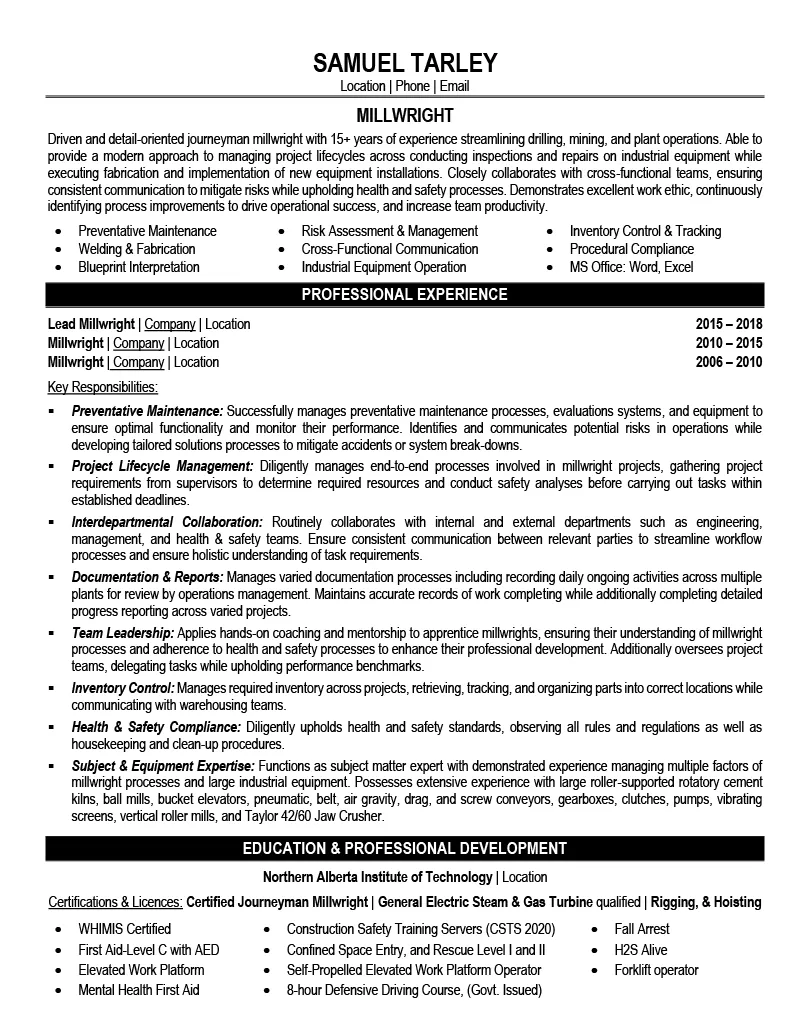
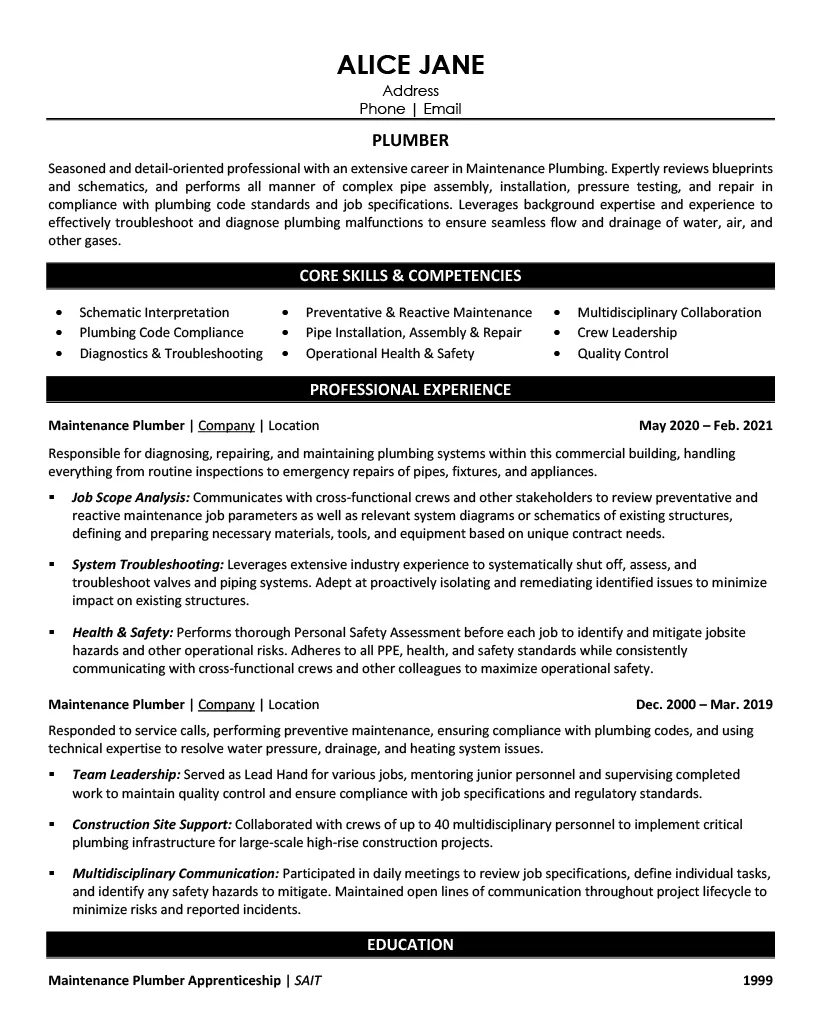
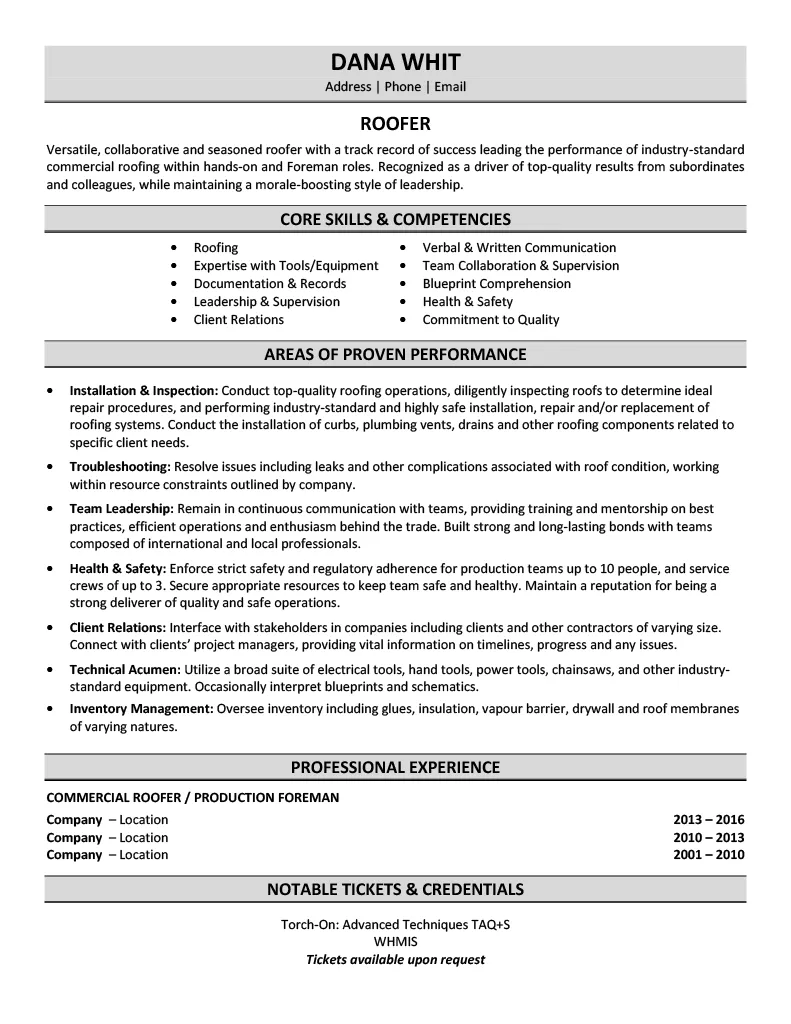
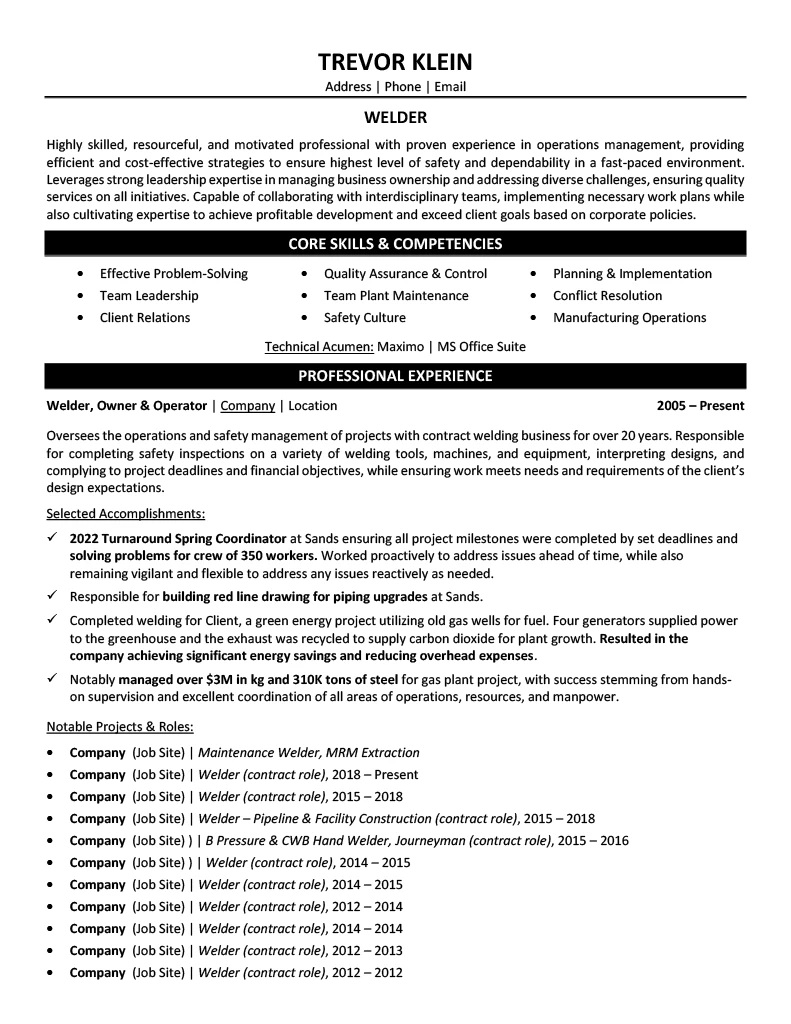
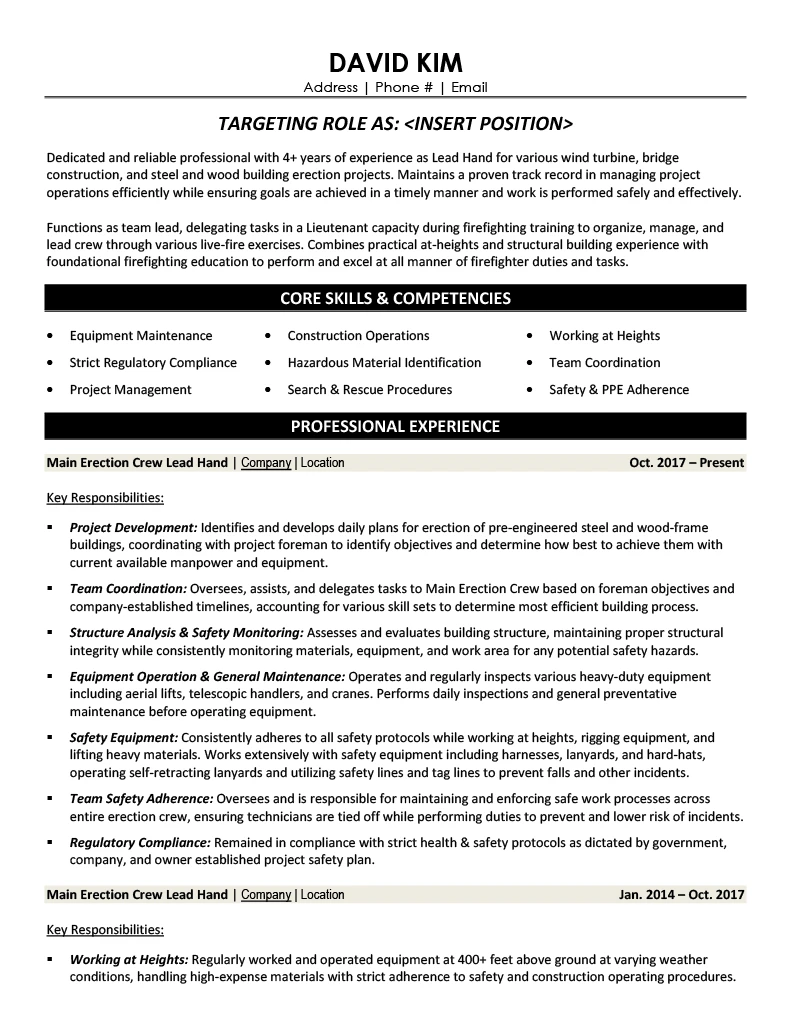
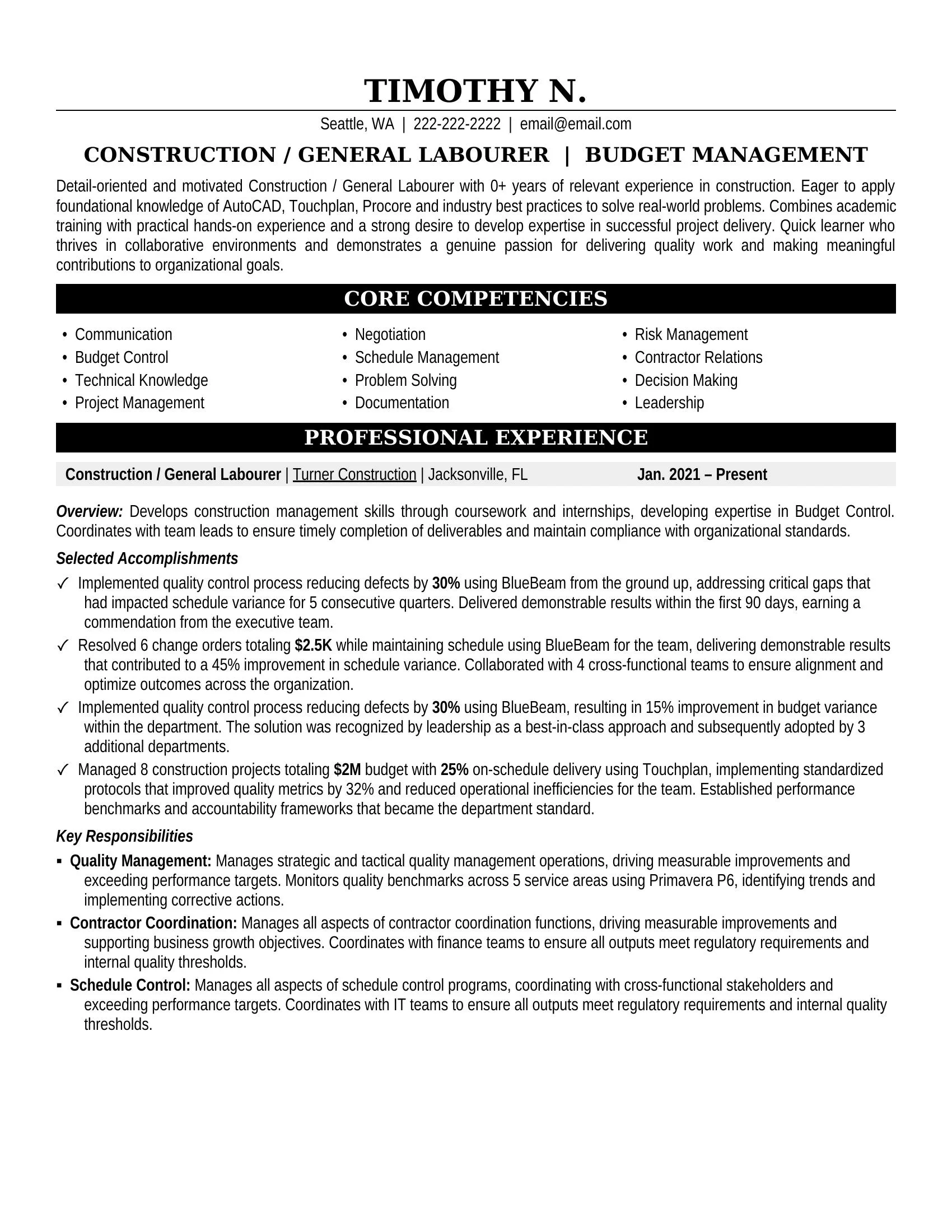
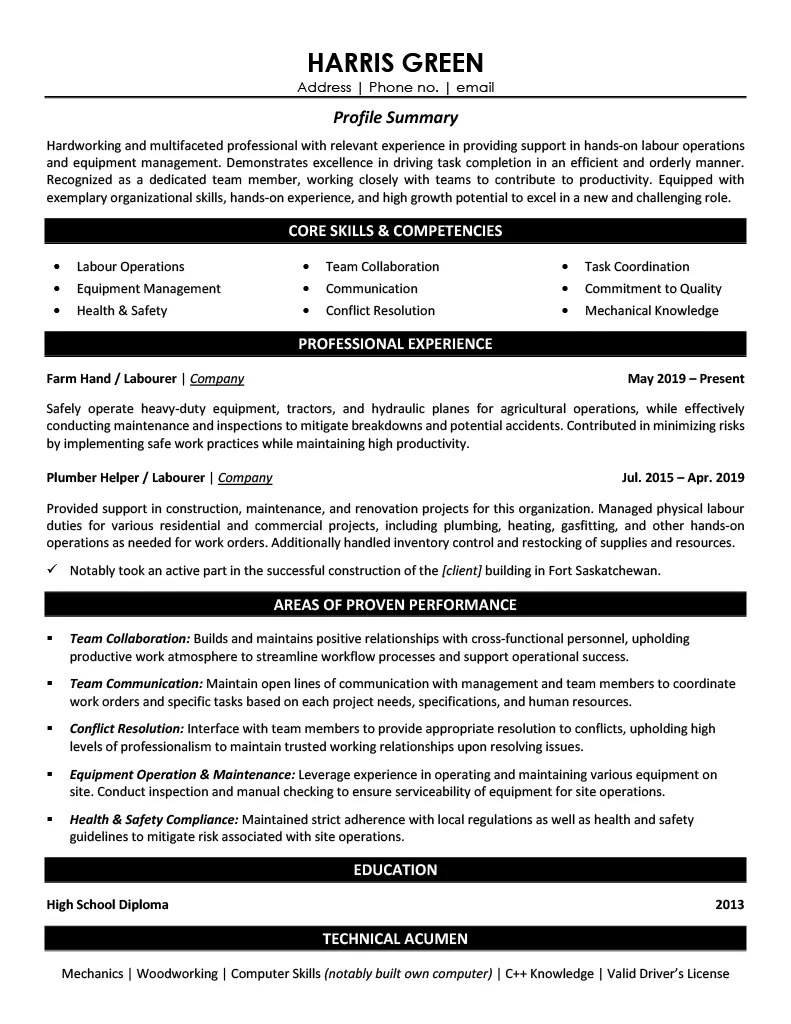
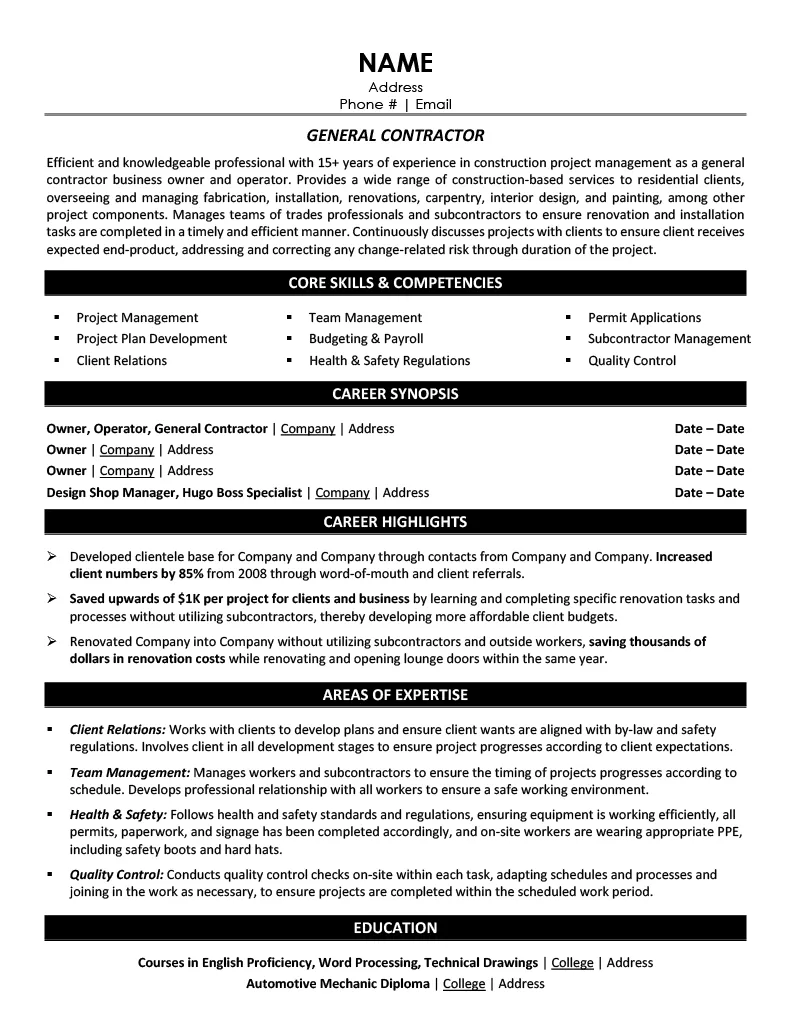

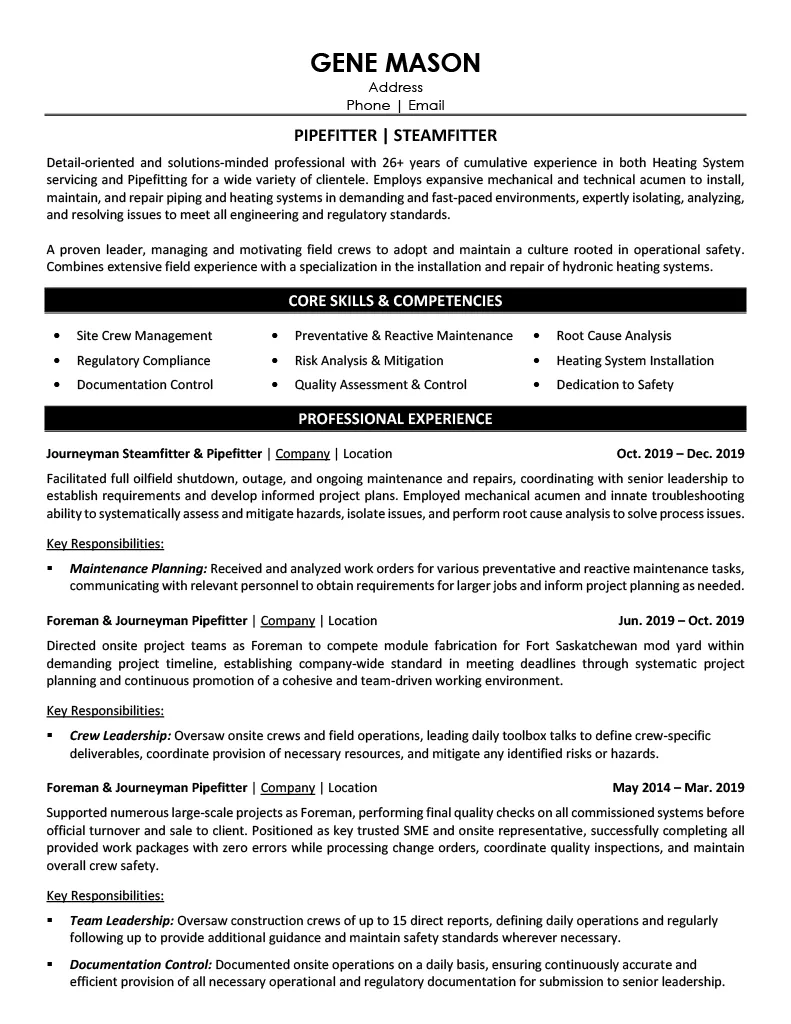
When a hiring manager reads your trades resume, they should think:
"This person has solved the exact problems we're facing."
What were the projects or initiatives you worked on? We probe to understand the scope, the stakes, and the significance.
"Tell me about the biggest project you led last year..."What were the goals of the project? The company's objectives? We connect your work to business outcomes.
"What was the company trying to achieve with this?"What systems, processes, and strategies did you implement? This is where your expertise becomes visible.
"Walk me through how you actually made this happen..."What challenges did you face? What systems did you implement to overcome obstacles?
"What was the biggest challenge, and how did you solve it?"See how our interview process uncovered achievements and turned them into interview-winning proof.
Get Your Trades Resume Written
Trades jobs average 40 applicants per position. You're competing against 800 candidates. Our trades resume examples show how to stand out.
Data based on LinkedIn job postings. Updated Mar 4, 2026.
Here's the math most job seekers don't do:
Your trades resume must stand out against 800 professionals.
What makes you different is the story behind the projects.
Get Your Trades Resume WrittenEvery trades resume example on this page was written through our 1-on-1 interview process. We extract achievements you'd never think to include.
We identify keywords and achievements that get trades resumes noticed.
Targeted questions about your trades projects and results.
Transform responsibilities into quantified achievements.
ATS-optimized resume in 3 business days + 14-day revisions.
80% of trades positions are never advertised. Get your resume directly into the hands of recruiters filling confidential searches.
When you purchase our Resume Distribution service, your resume goes to 450+ recruiters specializing in trades — included in Advanced & Ultimate packages.
| Agency | Location |
|---|---|
|
HA
Hays Specialist Recruitment
|
Nationwide |
|
RA
Randstad Staffing Agency
|
Nationwide |
|
KE
Kelly Services Workforce Solutions
|
Nationwide |
|
MA
ManpowerGroup Talent Solutions
|
Nationwide |
|
AD
Adecco HR Services
|
Nationwide |
Skilled trades averages 40 applicants per position across 5,000 active job postings — lower than most white-collar industries because skilled labor shortages reduce the applicant pool. But "lower competition" doesn't mean easy hiring. Plumber positions are the most competitive at 39 applicants per opening, where employers evaluate safety record, skill level, reliability, work quality, and leadership capability. Wind Turbine Technician draws 37, screened for trade certifications, quality, and safety record. Millwright averages 36, also evaluated on certifications, quality, and safety. Roofer and Welder each draw 33, and Carpenter averages 30. Apply to 20 positions in a typical 30-day search and you're one of roughly 800 candidates competing. In the trades — where your work is visible and your safety record follows you — the resume that quantifies projects completed, crews led, and safety outcomes beats "experienced tradesperson with 10 years in the field" every time.
Because trades achievements are project outcomes, safety records, and crew leadership results that questionnaires never capture. A Plumber who writes "performed plumbing work" could describe any licensed plumber with a van. Our interview process extracts the safety record, skill level, reliability, work quality, and leadership that prove you deliver — in a 39-applicant field. A Welder who claims "did welding on job sites" becomes someone with documented safety record, skill level, certification outcomes, and work quality — at 33 applicants per opening. A Millwright who "installed and maintained equipment" becomes someone with quantified trade certifications, quality outcomes, and safety record — at 36 applicants. A Wind Turbine Technician who "serviced turbines" becomes someone with measurable certifications, quality, and safety outcomes — at 37 applicants. A questionnaire produces "experienced tradesperson, OSHA 30, journeyman license." The interview captures the projects delivered, the crews managed, and the zero-incident safety record maintained.
They're screening for safety, reliability, and work quality — not just license numbers and years in the trade. For Plumbers, Roofers, Welders, and Carpenters: safety record, skill level, reliability, work quality, and leadership (if supervising) — Plumber draws 39, Roofer and Welder 33, and Carpenter 30 applicants where zero-incident records, code compliance rates, and project completion outcomes separate candidates. For Millwrights and Wind Turbine Technicians: trade certifications, quality, and safety record — Millwright draws 36 and Wind Turbine Tech 37 applicants where specialized certifications and equipment-specific experience matter. Across all trades, employers prioritize safety first — EMR ratings, OSHA compliance, and incident-free hours are the first screen before technical capability. Then they evaluate project scale, work quality, and whether you can lead crews. Hiring managers at Turner Construction, Bechtel, and EMCOR check for journeyman/master licenses, OSHA 10/30, trade-specific certifications (AWS, EPA, NFPA), and equipment proficiency before reviewing project experience.
It matters in the details, but all trades share the same core evaluation: safety, skill, and reliability. Plumbers prove capability through code compliance, system complexity, and project scale — at 39 applicants where medical gas, fire suppression, and commercial plumbing specializations differentiate. Welders prove capability through certification level (1G through 6G), pass rates, and material expertise — at 33 applicants where AWS certifications, X-ray pass rates, and specialty metals matter. Carpenters prove capability through project types, finish quality, and leadership — at 30 applicants where commercial vs residential, rough vs finish, and crew supervision differentiate. Millwrights prove capability through equipment expertise, precision alignment, and industrial maintenance — at 36 applicants where plant shutdown experience and critical equipment uptime matter. Wind Turbine Technicians prove capability through certifications, safety at height, and maintenance quality — at 37 applicants where GWO certification and manufacturer-specific training matter. During your interview, our writers identify your trade specialty and extract the project outcomes, safety records, and technical certifications that employers evaluate.
Our trades resume packages are based on career level and interview depth — from a 30-minute journeyman session to a 90-minute management/owner interview. When evaluating price, consider what the number actually buys. A company charging $79: after the company takes its margin, the writer earns $30-50 — enough for about 30 minutes of total work. That's a questionnaire reformat that produces "experienced tradesperson with OSHA 30 and journeyman license." Our Master/Lead-level interview alone is 60 minutes, followed by job posting analysis, drafting, and revisions — producing quantified project outcomes, safety records, and crew leadership results that prove impact in a field averaging 40 applicants per position. View current packages and pricing.
We offer a 90-Day Interview Guarantee. If you don't land interviews within 90 days of receiving your final trades resume, we rewrite it free of charge. We can make this guarantee because our interview-based process produces resumes built on the project outcomes, safety records, and work quality that trades employers respond to. Browse the resume samples on this page to see the quality of work we deliver.